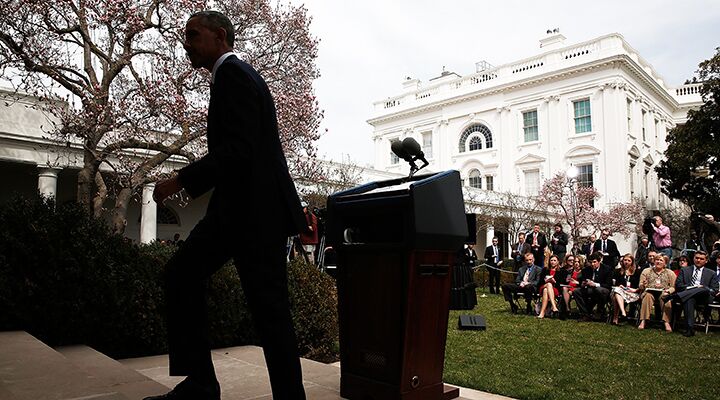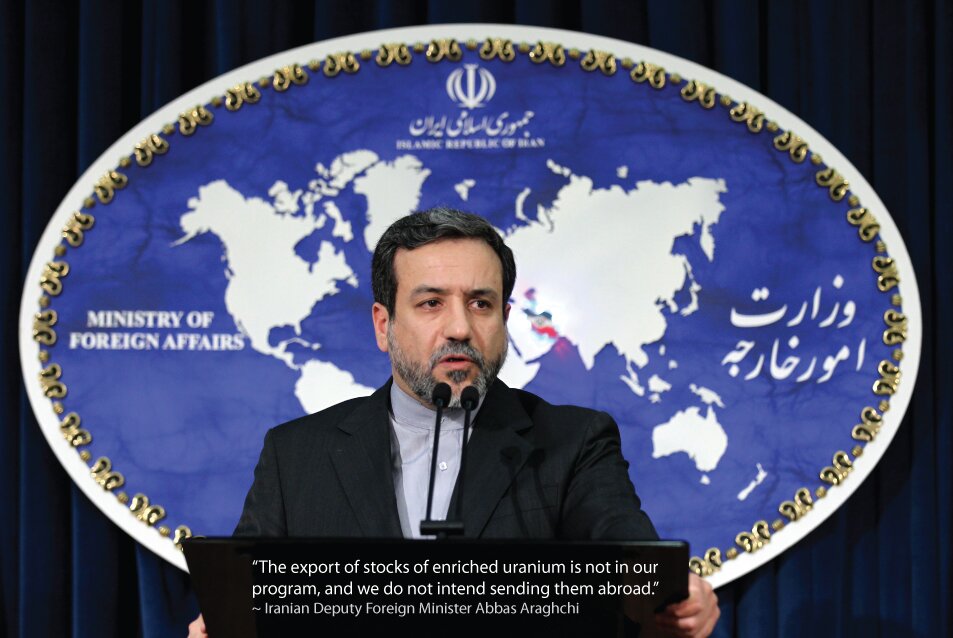
America’s ‘Bad Deal’ With Iran
Israeli Prime Minister Benjamin Netanyahu described what he foresaw emerging out of the talks over Iran’s nuclear program as a “bad deal,” much to the agitation of the Obama administration. Netanyahu even addressed Congress to explain his misgivings over the talks, only to be snubbed by the Obama administration.
Now that those talks have yielded an agreement, it’s time to ask: Is it a bad deal or a good deal?
Here are some aspects of the agreement that make it easy to answer that question.

In nbc’s Meet the Press program on Sunday, Prime Minister Netanyahu contended that he was not “trying to kill any deal.” He explained, “I’m trying to kill a bad deal.” In an interview with the New York Times published Sunday, President Obama, on the other hand, insisted that his administration is pursuing a good deal—a “once in a lifetime opportunity,” and “our best bet by far to make sure Iran doesn’t get a nuclear weapon.”
The facts prove that Netanyahu is right about the “bad deal.” The Obama administration can only talk about betting and gambling about Iran getting nuclear weapons, confirming what a bad (and potentially deadly) deal it is. This is highlighted by considering how often the administration has grossly underestimated the problems in the Middle East.
In the past, the Obama administration bet on the Islamic State being a mere “junior varsity” terrorist group. Now, the Obama administration considers the Islamic State the main terrorist group in the Middle East, as its “Statement for the Record Worldwide Threat Assessment of the U.S. Intelligence Community” report said.
“With respect to Syria,” U.S. President Barack Obama told the New York Times in August 2014, “it has always been a fantasy—this idea that we could provide some light arms or even more sophisticated arms to what was essentially an opposition made up of former doctors, farmers, pharmacists and so forth, and that they were going to be able to battle not only a well-armed state but also a well-armed state backed by Russia, backed by Iran, a battle-hardened Hezbollah, that was never in the cards.”
Now that “fantasy” is reality, and even Congress is supporting it.
When President Obama declared the “end” of the Iraq War in 2011, he assured the American people that “we’re leaving behind a sovereign, stable and self-reliant Iraq.” Since that time, Iraq has been devastated by the Islamic State and is now at the mercy of Iran—not the U.S.—for salvation.
President Obama also bet on Yemen being a model for success in fighting terrorism. Now, the Yemeni government has fallen to Iranian-sponsored Houthi rebels.

Iran has proven that it will not be persuaded from its aggressive thrust toward regional dominance through sanctions or nuclear deals. The Bible describes Iran as the “king of the south” which pushes around other nations. The Obama administration’s naivety toward Iran will soon translate to complicity in Iran’s goal to dominate the Middle East and threaten the world—as the prophesied king of the south.
For more on this subject and how Iran’s nuclear crisis will be permanently resolved, read The King of the South.
